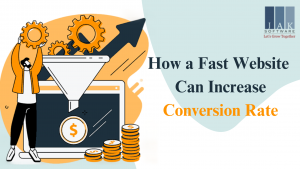The Rise of Artificial Intelligence in Advertising
The integration of artificial intelligence (AI) in advertising is reshaping the landscape by allowing for the creation of highly personalized and efficient campaigns. As digital marketing specialists continue leveraging advancements in AI technologies, the ability to analyze consumer behavior through machine learning algorithms is significantly enhanced. These algorithms are capable of processing vast amounts of data, leading to predictive insights that inform marketing strategies and ad placements.
One Impact of AI on Real-Time Advertising Optimization
By examining user interactions, AI systems can adjust ad delivery based on customer preferences and behaviors, ensuring that the right messages reach the intended audiences at optimal times. This improves engagement rates and increases the return on investment for advertisers, allowing them to allocate resources more effectively within their digital marketing campaigns.
Brands that have successfully adopted AI-driven strategies serve as instructive case studies for the future of paid marketing advertising. For instance, a leading e-commerce service utilized AI tools to analyze shopping patterns and tailor personalized content that resonated with their customer base. This resulted in a dramatic increase in conversion rates, underscoring the value of utilizing web development services augmented by AI capabilities.
Beyond Efficiency: Automation in marketing advertising goes beyond just improving efficiency; it brings deeper implications for the industry.
Human Insight & Creativity: Despite AI’s ability to streamline campaign management, human insight and creativity remain crucial in the process.
Collaboration with Technology: Marketers must adapt to work alongside AI, leveraging its capabilities while maintaining the human element in brand storytelling.
Future of Marketing: The combination of AI and strategic marketing offers an exciting vision for the future.
Staying Competitive: Marketing professionals need to familiarize themselves with artificial intelligence artificial intelligence( AI) advancements to remain competitive in the industry.
Shifts in Consumer Behavior and Expectations
In the rapidly evolving landscape of digital marketing advertising, shifts in consumer behavior and expectations are becoming increasingly prominent. As we approach 2025, consumers are displaying a growing demand for authentic and socially responsible brands. This trend is influenced by various factors, including increased access to information and heightened awareness of social and environmental issues. Moreover, consumers are now more likely to support brands that align with their values, which necessitates that advertisers integrate social responsibility into their messaging and practices. Therefore, marketers need to position themselves as advocates for meaningful causes, establishing a foundation of trust with their audience.
The Impact of Data Privacy Regulations on Consumer Trust and Brand Loyalty
Additionally, data privacy regulations, such as the General Data Protection Regulation (GDPR) and the California Consumer Privacy Act (CCPA), have significantly impacted consumer trust. As these regulations continue to evolve, consumers are becoming more discerning about how their data is collected, used, and shared. This shift places a premium on transparency and accountability within digital marketing campaigns. Advertisers, along with web development services, must develop strategies that not only comply with these regulations but also enhance consumers’ trust and confidence in their brands. Demonstrating a commitment to ethical data practices through secure web development can lead to stronger customer relationships and brand loyalty.
Consumer Resistance to Intrusive Ads: The rise of ad-blocking technologies highlights growing consumer resistance towards irrelevant or intrusive advertising.
Demand for Control: Users are increasingly seeking more control over their online experiences, forcing advertisers to reassess their strategies.
Leveraging SEO & Engaging Content: To stay competitive, marketers must focus on advanced search engine optimization (SEO) techniques and create high-quality, engaging content that resonates with audiences.
Collaboration for Innovation: E-commerce services, web development services, and digital marketing specialists must collaborate to create innovative solutions that align with consumer preferences.
Building Meaningful Connections: The goal is to foster meaningful connections by embracing customer needs and delivering value through thoughtful, customer-centric strategies.
Emerging Platforms and Technologies to Watch
The landscape of paid advertising is poised for transformation by 2025, significantly influenced by emerging platforms and technologies. One of the most critical groundbreaking technologies on the horizon is augmented reality (AR) and virtual reality (VR). In addition, these immersive technologies offer a dynamic way to engage consumers, allowing advertisers to create compelling experiences that go beyond traditional media. Furthermore, brands that embrace AR and VR can stand out in a crowded marketplace, offering interactive experiences that resonate more deeply with their audiences.
In parallel, social media platforms continue to evolve rapidly, propelling new marketing advertising methodologies. With the growing use of short video formats and live streaming, advertising on these platforms will lean heavily on authentic storytelling and user-generated content. Social media channels are already essential for digital marketing specialists, providing innovative ways to connect with consumers while leveraging data analytics to target audiences more effectively. As algorithms improve, platforms will become better at delivering personalized content that drives engagement and conversion.
Opportunities in E-Commerce Expansion: The growth of e-commerce services provides brands with more opportunities to leverage paid advertising.
Rise of Social Commerce: Social commerce is on the rise, offering seamless shopping experiences directly within social media apps.
Simplified User Journey: This trend streamlines the path from ad exposure to purchase, making it easier for advertisers to track conversions.
Need for Agility: Advertisers must remain agile and open to experimenting with new ad formats and placements as platforms and technologies evolve.
Harnessing Emerging Technologies: By embracing emerging technologies and adapting to new social dynamics, advertisers can stay ahead in a competitive market.
Enhanced Marketing & Web Development: This approach leads to more effective web development services and improved marketing strategies.
The Importance of Data Analytics and Measurement
In the rapidly evolving landscape of paid advertising, the significance of data analytics cannot be overstated. Moreover, advertisers are increasingly relying on sophisticated analytics to drive decision-making processes and optimize performance. Additionally, advanced metrics and key performance indicators (KPIs) are essential tools for assessing the effectiveness of advertising campaigns. This intricate examination of data helps in understanding consumer behavior patterns, allowing marketers to tailor their strategies accordingly. A digital marketing specialist must focus on establishing clear KPIs that align with business objectives to ensure that advertising efforts yield a positive return on investment (ROI).
Furthermore, the integration of omnichannel analytics allows advertisers to compile data across multiple platforms, creating a unified view of consumer interactions. In doing so, advertisers can track how audiences engage with their advertisements at various touchpoints, building a more comprehensive understanding of the customer journey. This holistic approach facilitates better-informed strategy decisions, ultimately leading to more impactful advertising outcomes. As the e-commerce market expands, employing web development services in conjunction with effective data analysis tools becomes critical, ensuring that businesses remain competitive in their outreach efforts.
Leveraging Data Analytics for Enhanced Campaign ROI
This includes segmenting audiences based on behavioral patterns, tailoring messaging to resonate with specific demographics, and continuously monitoring campaign performance to adapt strategies in real time. By employing advanced search engine optimization techniques, marketers can ensure that their paid advertising campaigns are not only data-driven but also optimized for maximum visibility and engagement. Advertisers will refine their approaches by using a continuous feedback loop, where data informs strategy and they measure results against established KPIs, ultimately leading to successful campaigns in the future.
Conclusion
The digital advertising landscape is rapidly evolving, driven by the integration of artificial intelligence, shifting consumer behaviors, and emerging platforms like AR, VR, and social commerce. As marketers navigate these changes, it’s essential to balance the automation and efficiency offered by artificial intelligence (AI) with the human creativity that shapes compelling brand storytelling. Furthermore, understanding consumer demands for authenticity, social responsibility, and privacy will be critical in establishing trust and nurturing long-term relationships with audiences.
To remain competitive, advertisers must embrace innovation, utilizing data analytics to drive decisions and optimize campaigns. Additionally, by leveraging emerging technologies and collaborating with e-commerce and web development services, brands can craft seamless and engaging experiences that resonate with their target audience. Ultimately, the key to success in advertising will lie in staying agile, data-driven, and customer-focused, ensuring that campaigns deliver both business value and meaningful connections.




